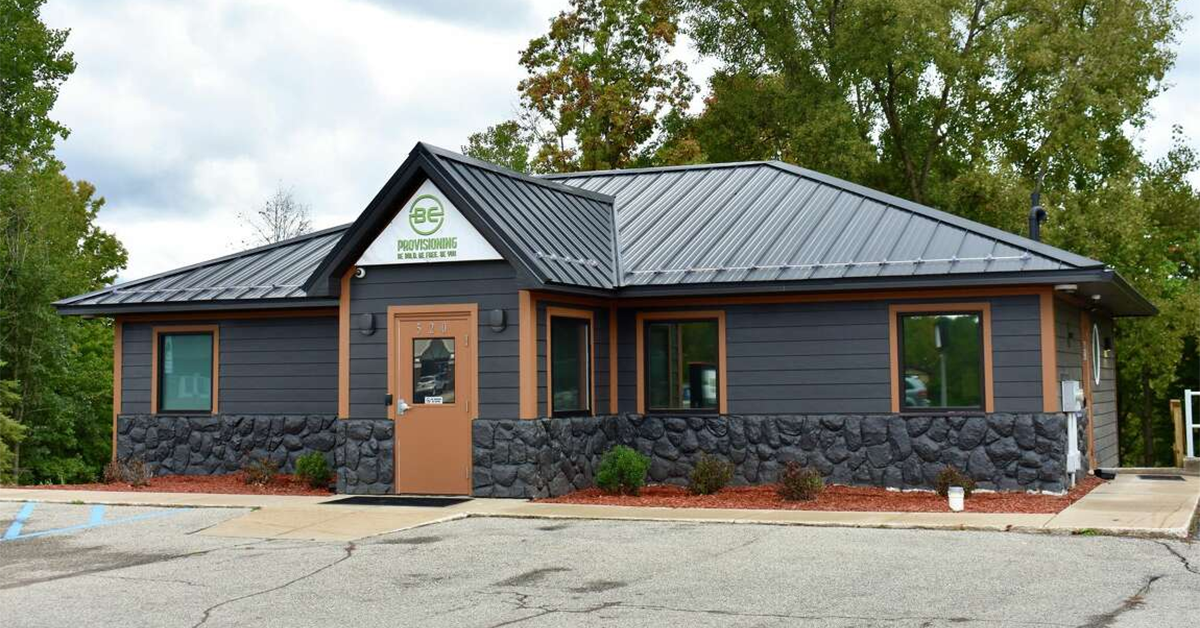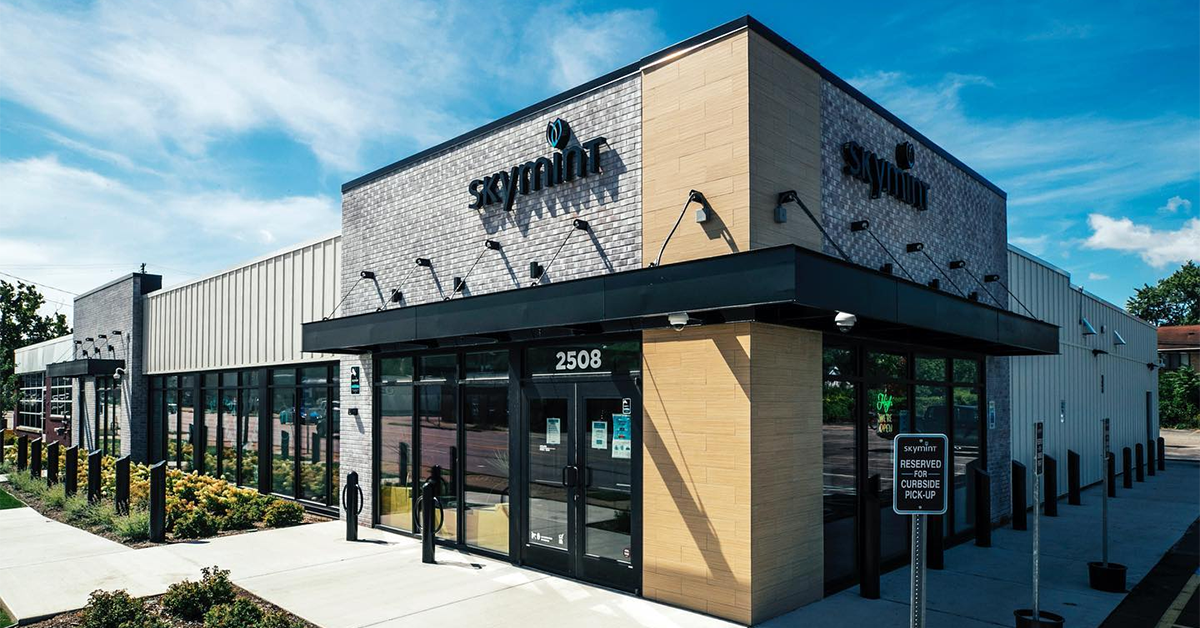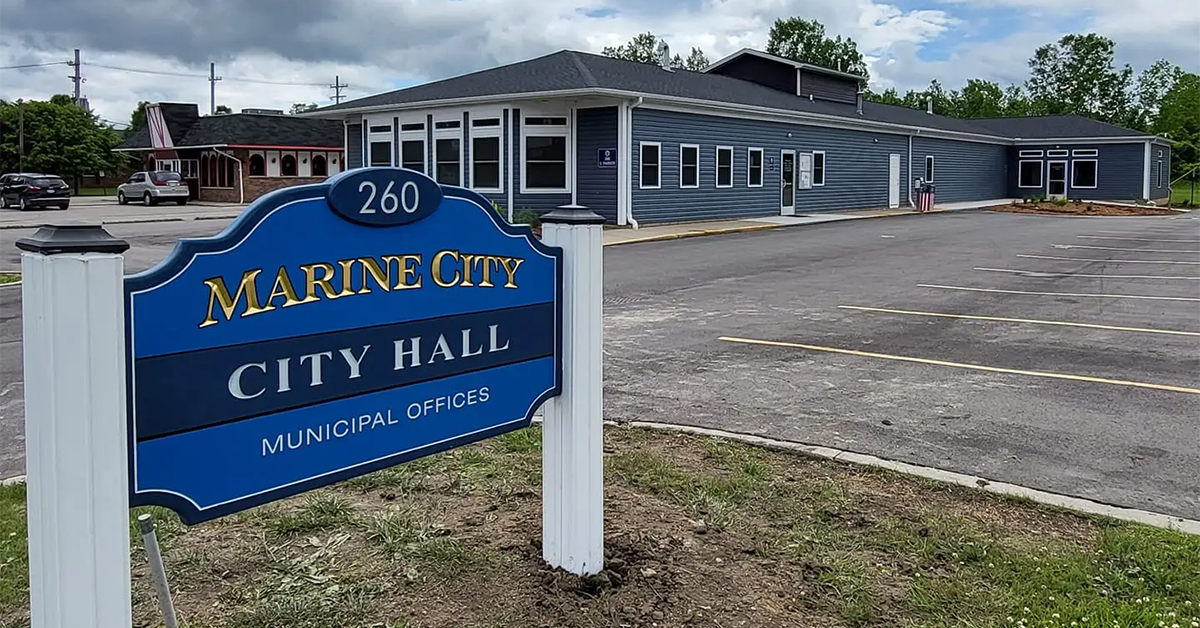Otsego County Warns Pet Owners Following THC-Induced Dog Attack

In light of a recent harrowing incident, Otsego County Animal Control is emphasizing the importance of securing hazardous substances to ensure pet safety. Last week, a family dog unexpectedly attacked its owner following the ingestion of a THC-infused edible. This incident has sparked a dialogue concerning the potential dangers posed by THC to household pets.
Melissa FitzGerald, the Director of Otsego County Animal Control, recounted the distressing episode where a woman was severely attacked by her family dog after it consumed a THC gummy. The dog, which had been a non-aggressive family member for four years, exhibited uncharacteristic aggressive behavior following the ingestion of THC.
The incident underscores a critical yet often overlooked aspect of pet care—protecting pets from harmful substances. While it's common knowledge among pet owners that certain foods like chocolate can be harmful to dogs, the dangers of THC, a compound found in marijuana and cannabis products, remain relatively unknown to many.
Michigan State University's College of Veterinary Medicine elucidates that THC, the psychoactive compound responsible for the "high" in humans, is actually toxic to animals including dogs, cats, and horses. Unlike CBD, which is deemed safe for dogs, THC can trigger a spectrum of adverse reactions ranging from lethargy and incoordination to restlessness and, as witnessed in Otsego County, aggression.
The incident in Otsego County serves as a stark reminder for pet owners to keep their cannabis products well out of reach from their furry companions. FitzGerald stressed the importance of awareness among pet owners regarding the potential impact of THC on pets, indicating that the effects can vary significantly depending on the individual animal.
"It's crucial to understand the possible reactions and to know what signs to look for," FitzGerald explained. She emphasized the responsibility of pet owners to ensure that harmful substances, especially marijuana and THC products, are securely stored away from pets.
In a proactive measure to prevent similar incidents, FitzGerald revealed that she's collaborating with the Michigan Department of Agriculture and Rural Development (MDARD) and the state veterinarian to advocate for warning labels on THC products, highlighting the risks they pose to pets.
For pet owners who suspect their animal might have ingested THC, immediate contact with a veterinarian is strongly advised. This incident serves as an impetus for both pet owners and the cannabis industry to work together in ensuring the safety of our beloved animals while enjoying the benefits of cannabis responsibly.
BE Provisioning Establishes Presence in Big Rapids

Big Rapids, a city with a growing interest in the cannabis sector, has recently seen the establishment of BE Provisioning, a new dispensary located at 520 S. Third Ave. This female-led marijuana cultivation business is focused on the variety and quality of its products, making it a notable addition to the city's roster of dispensaries.
The arrival of BE Provisioning in Big Rapids is part of the company's broader strategy to expand its footprint across Michigan. Rooted deeply in the state, the company has expressed its intent to have a positive impact on local communities. Fundamental to BE's operations is the objective of facilitating a well-informed cannabis experience. This is pursued through a blend of educational initiatives and an emphasis on sustainable and positive practices for the environment.
An intriguing facet of the company is its leadership. Dreka Gates, a partner in the venture, has successfully established herself in what many perceive to be a predominantly male industry. Her approach, which integrates inclusivity and innovation, has garnered attention and commendation.
Tyler Weedon, responsible for the brand's marketing and product development, has voiced his enthusiasm regarding the Big Rapids establishment. His connection to the city is personal, having pursued his undergraduate studies at Ferris State University and having represented the institution in athletics. Weedon's remarks highlight a blend of personal and professional interests, reflecting the company's broader commitment to the communities it serves.
BE Provisioning offers a variety of strains, many of which have received accolades. The company's team, trained and dedicated, aims to ensure that customers receive consistent quality, service, and value. Their efforts have been recognized, with the company securing awards such as the 2022 Cultivation of the Year from MI Green State. Additionally, Dreka Gates' contributions were acknowledged when she was named the 2022 Cannabis Women of the Year, and the company itself was highlighted as a 2022 Finalist for Industry Best Staff.
Dreka Gates shared her perspective on the industry, emphasizing the challenges and learnings inherent in cultivating marijuana. Her insights underscore the iterative nature of the business, where continuous learning and adaptation are crucial.
The company has announced a soft opening scheduled for October 14th, running from 9 a.m. to 9 p.m. This event will provide customers with an opportunity to familiarize themselves with BE Provisioning's product range, which includes flowers, pre-rolls, vaporizers, edibles, and concentrates.
Tyler Pritt, representing BE Provisions, reiterated the company's commitment to its staff, recognizing their pivotal role in its operations.
Skymint Embarks on a New Chapter through Strategic Acquisition

In a key move for Michigan's marijuana business, a company named SunStream Bancorp Inc. is helping organize the sale of important parts of Greenpeak Industries Inc., which does business as Skymint. These parts are being sold to a newly created company named Skymint Acquisition Co., which was carefully set up with the help of another company named Tropics LP. Tropics is entirely owned by an affiliate of SunStream. This deal is a crucial step in reshaping Skymint's business and future operations.
Highlighting the Skymint Transaction
On March 3rd, Tropics, fully enveloped by Sunstream, which is co-sponsored by SNDL Inc. (Nasdaq: SNDL), maneuvered through the legal and financial labyrinth to procure a court-appointed receiver for Skymint's assets from the Circuit Court for Ingham County, Michigan. Trust Street Advisors, LLC, the appointed receiver, efficiently helmed an auction for Skymint's assets, culminating in the selection of Skymint Acquisition Co. as the winning bidder. On October 12th the ensuing Sale Order sanctioned the asset transition to Skymint Acquisition Co., with the final closing projected for the first quarter of 2024. The culmination of this deal hinges on acquiring the nod from regulatory bodies, such as the Cannabis Regulatory Agency of Michigan and several local municipalities.
An Overview of the Transferred Assets
The agreed asset purchase encompasses the acquisition or assumption of 21 retail leases with dispensaries, boasting an impressive annualized sales figure of approximately $68 million as of September 2023. Additionally, it involves taking on essential cultivation and equipment leases to ensure continuity in operations. A noteworthy aspect of the receivership process involves the intentional rejection of cultivating, equipment, and retail leases, which collectively represented over $12 million of annual fixed obligations, ensuring they are neither purchased nor assumed by Skymint Acquisition Co.
Tracing Back to the Origins of the Skymint Transaction
Circling back to September 2021, Tropics extended a loan of $70 million to Skymint, which was secured by a first-priority lien on nearly all assets of Skymint. Despite initial assurances and subsequent acquisitions, like that of the Michigan-based cannabis business 3Fifteen, Skymint found itself ensnared in financial difficulties by March 2022. Efforts to mitigate these fiscal challenges, including a first amendment of the Skymint Loan and an additional $5 million loan from Tropics, did not bear the desired fruits, ultimately paving the path towards the aforementioned transaction.
Positioning for Future Growth: The Role of Advisors
Guidance through this complex transaction was provided by Honigman LLP, Miller Johnson, and The Dragich Law Firm, acting as legal counsels to Tropics, Skymint, and Trust Street Advisors, LLC, respectively.
Spotlight on SNDL Inc. and Sunstream
SNDL, publicly traded under the symbol "SNDL" on Nasdaq, stands out as the largest private-sector liquor and cannabis retailer in Canada, offering a broad spectrum of products through varied retail banners and housing an expansive portfolio in the cannabis industry. Sunstream, on the other hand, strategically aligns its financial and operational expertise to target fruitful opportunities within the cannabis industry, having deployed approximately $450 million to seven companies from its inception until June 30th, 2023.
Conclusion: A Forward-Looking Perspective
The prospective closing of the Skymint Transaction and the anticipated leverage and future performance of Skymint Acquisition Co. remains enveloped in a myriad of forward-looking statements, intertwined with various risk factors and uncertainties. As we collectively navigate through these transitional phases within the cannabis industry, continuous updates and critical analyses will be paramount in understanding the unfolding landscape.
For in-depth information on SNDL, interested parties can visit SNDL.com.
Marine City Contemplates Marijuana Facilities Ordinance

In a succession of consequential meetings, Marine City Commission has embarked on a journey through legal and legislative intricacies concerning the future of marijuana facilities within its jurisdiction. This comes amid extensive discussions, varied opinions, and robust debates, indicating the significance and sensitivity of cannabis legislation in the local governance context.
A Stance Towards Actionable Change
On October 5th, the Marine City Commission reflected a 6-1 voting pattern, spearheading the first reading of an ordinance tailored to license, site plan, and regulate adult-use marijuana facilities. This progression was not without its fair share of legislative intricacies and debates. Notably, Commissioner Michael Hilferink emerged as a vocal dissenting figure throughout the proceedings.
The journey to this point commenced in June, with the commission instructing City Attorney Robert Davis to conceptualize an actionable ballot initiative to permit dispensaries within Marine City. Davis, in response, articulated legal limitations, noting that a direct ballot initiative from the commission was not viable and later presented an ordinance as an alternative.
The Struggle with Setbacks and Legalities
Amidst this progression, complexities surrounding regulatory parameters – specifically, setbacks – emerged. Mayor Pro Tem Lisa Hendrick clarified that the setbacks, as per state law, must measure from lot line to lot line, contrary to the building-to-building measurement initially discussed. Subsequent to this, on September 14th, the commission settled for the first reading of the marijuana ordinance in the ensuing meeting.
The legislative tapestry was further complicated by Commissioner Hilferink, who expressed reservations on the ordinance-centric approach, juxtaposed against the initial preference for a ballot initiative. Davis responded by reiterating the commission's directive to opt for either maintaining the existing 2019 ordinance prohibiting facilities, sculpting an ordinance where the city dictates the location and type of recreational facilities, or navigating the turbulent waters of a legally adherent city ballot initiative.
Dissecting the Ordinance and Upholding Legal Scrutiny
With the evolution from the third to the second option, controversy unfolded regarding the ordinance's formulation and regulatory propositions. Commissioner Rita Roehrig motioned the first reading of the ordinance, which included notably stringent setbacks of 1,000 feet from an assortment of entities, such as residential zones, churches, and child care centers.
However, Hilferink spotlighted procedural disparities, especially considering the previous unretracted motion for a ballot initiative and the commission's obligation to facilitate a discourse on the ordinance's crafting. His grievances extended to transparency and inclusivity in deliberations, critiquing the private submission of comments to Davis rather than fostering an open discussion.
Davis, defending his approach, elucidated that the ordinance had undergone several iterations based on feedback and that it was not formulated in isolation from the commission's inputs. Tensions persisted, with discussions oscillating between the specificities of motions, requested adjustments, and the legitimacy of the setbacks proposed.
Transparency and Future Courses of Action
Despite the ripples of discontent and rigorous debate, the commission, in a 6-1 vote, approved the first reading of the ordinance, again witnessing Hilferink in dissent. Throughout the discussions, Hilferink accentuated potential violations of voter rights, a lack of clear directive for the ordinance, and apprehensions about de facto zoning out of marijuana facilities given the stringent setbacks.
As discussions simmered down, Hilferink underscored the pervasive issue of transparency and conveyed a sentiment that a majority of Marine City might have leaned towards supporting a vote on the marijuana facilities issue, had it been allowed to materialize. The final consideration and approval of the ordinance are slated for a subsequent meeting, promising further deliberations and potential adjustments.
Craft Cannabis Club Celebrates a Year of Enchanting Whimsical Wednesdays

Celebrating its roots deep in the enchanting soils of delightful memories and high-spirited moments, Craft Cannabis Club lights up the spark of celebration, marking the 1st anniversary of their whimsically wonderful event - Whimsical Wednesday. This enthralling affair is set to create a buzz in the Michigan marijuana community, planting seeds for future gatherings, all while sprouting a rich harvest of fun and fellowship among cannabis enthusiasts and novices alike.
Mark your calendars, dear Michiganders! This high-spirited affair is set to blossom on Wednesday, October 18th, from 5:30 - 10 pm EDT, right at the heart of the vibrant Craft Cannabis Club, located at 29 East Baltimore Avenue, Detroit, MI 48202.
Led by the renowned King Midas Cap Co, known for transforming events into golden memories, this evening promises not just a fusion, but a confluence of fun, flair, and festivity that twirls together like a perfectly rolled joint.
Savor and Elevate with Zenith Foodz: What's a celebration without a banquet of flavors, especially when paired with the exquisite aromas of craft cannabis? Zenith Foodz will cater an array of gourmet specialties designed to tantalize your taste buds and elevate your senses. An exclusive, complimentary tasting awaits every ticket holder, ensuring your palate embarks on a journey as delightful and varied as the strains celebrated at the Craft Cannabis Club.
Groovy Tunes with Amapiano Vibes: Keep the night alive and the vibes high! The Amapiano Vibes DJs are set to steer your rhythmic journey, ensuring your feet perpetually sway, and the night forever stays young and vibrant. Be ready to groove into a musical adventure that harmonizes perfectly with the spirited essence of Whimsical Wednesday.
Lucky Leafs – Raffles & Prizes: Ready to try your luck in with garden of delights? Engage in the raffles and you may just walk away with some fabulous prizes, adding that extra "zing" and zest to your evening of enchantment.
Harvest of Happiness – Swag & Giveaways: Ensure you're among the fortunate to pluck the whimsical giveaways – tokens to remember this magical evening by, long after the last leaf has been smoked and the final note played.
Whether you've meandered with them from the beginning of their journey, or are just now joining the festivity, come and root yourself in a night where every moment is cultivated to delight. Your presence will surely add a unique note to this harmonious blend of celebration and camaraderie.
Tickets are priced at $10 and can be purchased online, ready to be plucked by those eager to be part of an event that promises a bouquet of memories, mingling, and merriment.
Craft Cannabis Club invites you to immerse yourself in an enchanting evening where the air is imbued with whimsy, celebration, and a hearty dose of good old Michigan marijuana magic. RSVP now, and cultivate some unforgettable moments together!
The Sweet, High Notes of Michigan’s Cannabis Culture

You know you've made it big when your song becomes an anthem for an entire community. Michigan's own singer/songwriter, Sadie Bass, has been soaring to the sky-high stratosphere of the music industry with her hit "Wake N' Bake," backed with a catchy music video that was brought to life with the support of Laingsburg's Local Roots Cannabis and the iconic Michigan-based Redemption Cannabis.
Since the song's release, Bass hasn't just been taking a leisurely walk in the clouds. She's performed a jaw-dropping 56+ shows, spanning 18 states! Now, she's dialing up the heat in Nashville, collaborating with the big names of country music for her forthcoming album.
"Words can't describe how grateful I am to the Liskeys and the Local Roots team. 'Wake N' Bake' isn't just a song – it's a movement! Some folks down South seemed a tad bewildered by it, but music is a language open to interpretation," Bass commented with a chuckle. She even shared a light-hearted anecdote about a fan from Alabama who believed the song was a tribute to sunbathing – now, that's a different kind of baked!
Michigan and Nashville have become her two stomping grounds lately, as she prepares for her album launch and ensuing tour. When asked about her plans, Bass revealed, "There's a lot in the pipeline – from foot-tapping, high-octane numbers to groovy romantic ballads."


 Helpful Links
Helpful Links